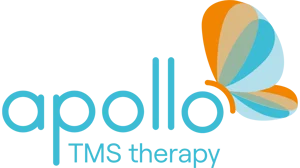Apollo TMS therapy is a safe and effective treatment for depression. It is particularly recommended for patients who did not respond to medication or other forms of treatment.
Scientific studies have shown that two out of three patients felt they benefited from TMS.
TMS can also be used for patients looking to lower the dose of antidepressant medication or for anyone hoping to cease taking medication entirely. This would be done under supervision of a doctor. Magnetic stimulation can therefore be an excellent way to support this transition process.

